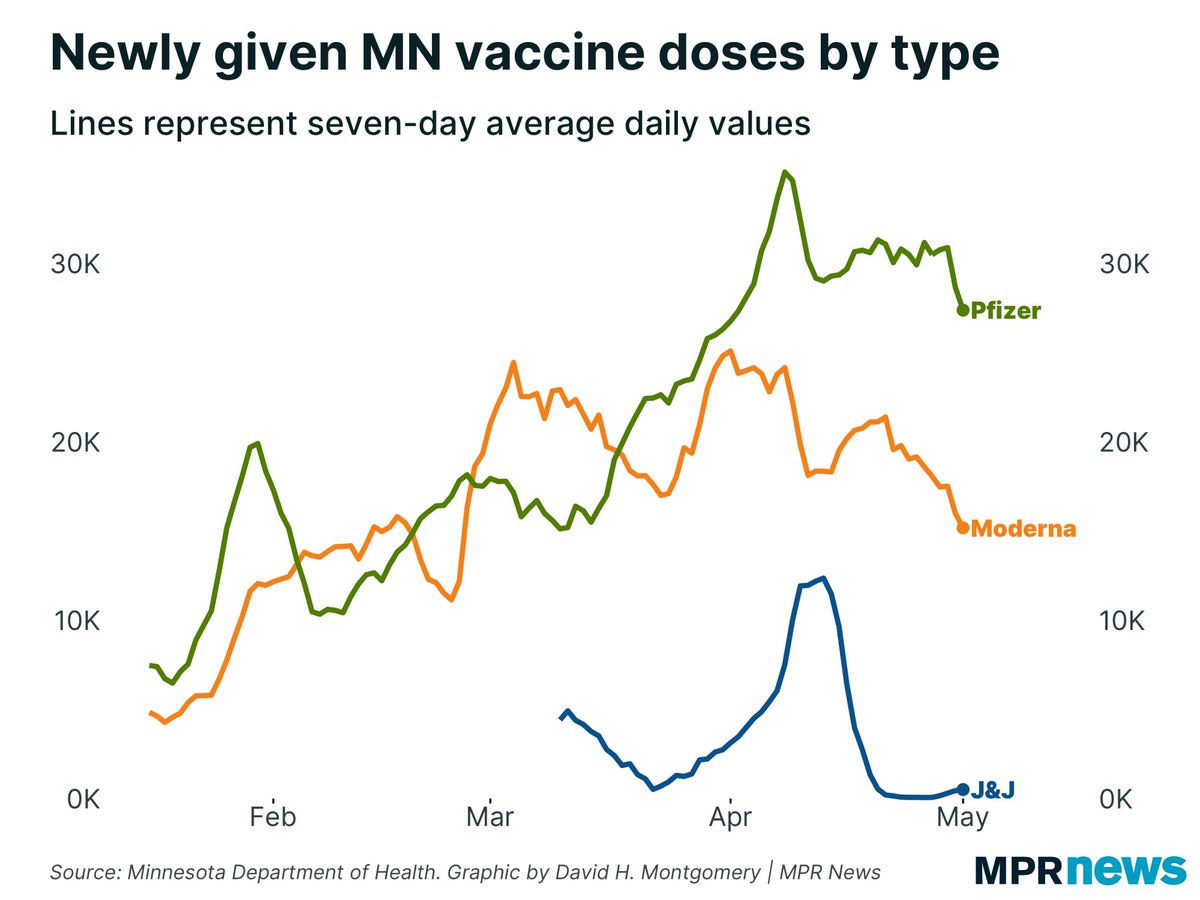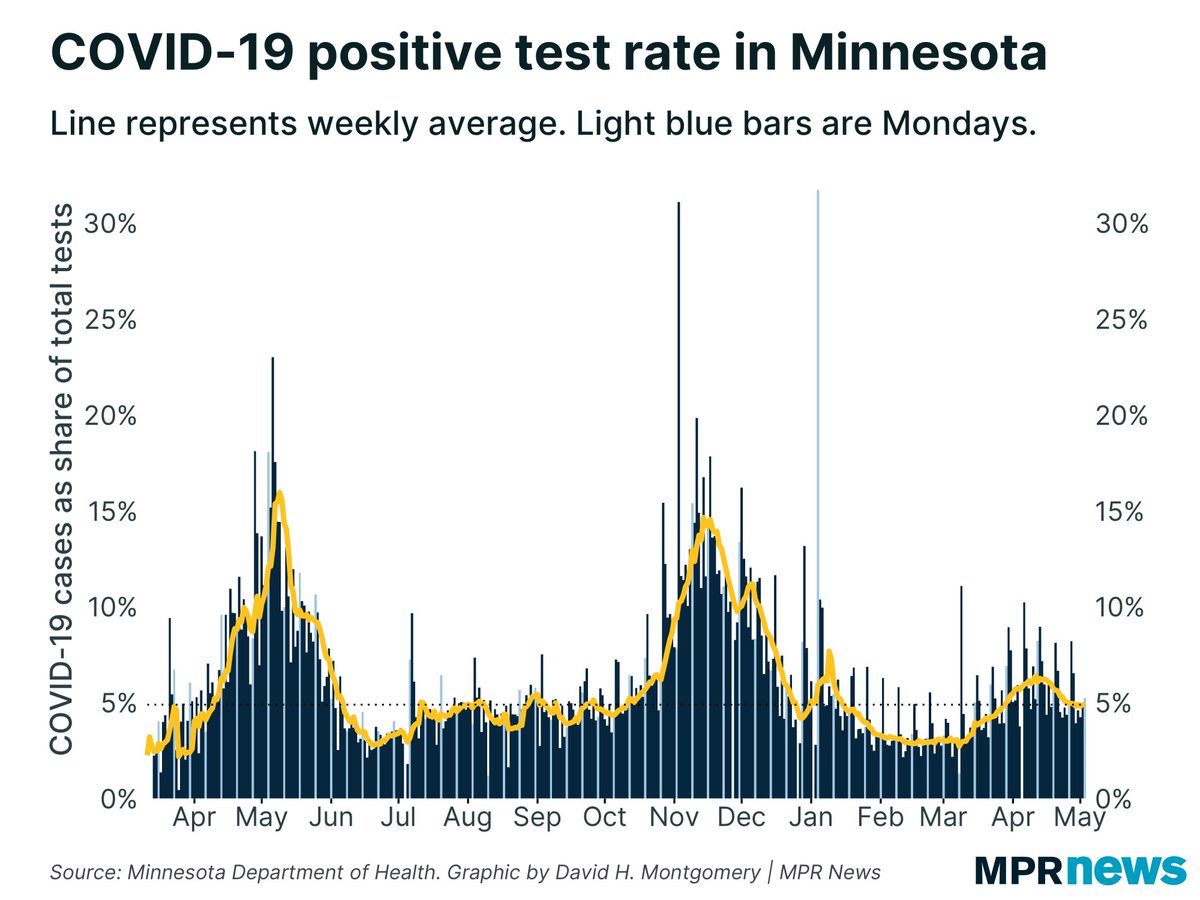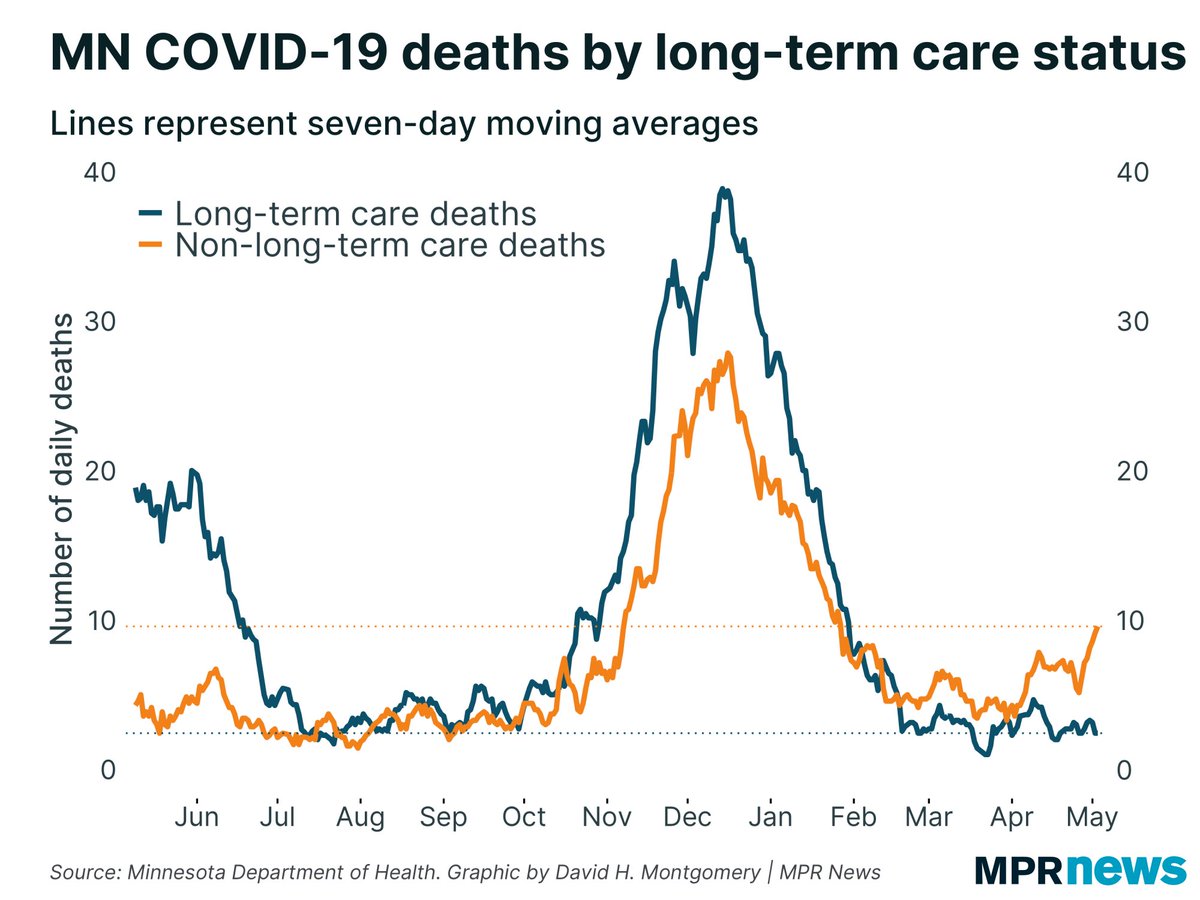Today’s #COVID19 news in Minnesota is not great. The number of newly administered first doses is plummeting. I actually think the current levels are artificially low — we’ve been getting an average of 20K 1st doses per day — and due for a bounceback, but this isn’t good. 

At the current pace, it’d take until late June to give 80% of Minnesotans their first vaccine.
A few weeks ago, we were chugging along at a mid-May pace.
A few weeks ago, we were chugging along at a mid-May pace.

J&J doses are starting to be given again, but only in relatively small numbers. Now Pfizer and Moderna doses are starting to decline, too. 

Meanwhile, Minnesota’s weeks-long improvement from its third #COVID19 wave might be stalling out. Positivity rate is plateauing around 4.9%, rather than continuing to decline to the 3% levels we saw a few months ago. 

Cases have continued to decline, but some of that is due to lower testing volume. Cases identified in last Monday’s testing were only fractionally lower than the Monday prior, after a few weeks of more significant drops. 

There’s also, I think, increasingly strong evidence that we are seeing a moderate death spike from third wave cases. With nursing home residents mostly vaccinated, this is happening largely in the general population. 



To be clear, all this not-great #COVID19 news needs to be taken in context. Case growth is plateauing at 4.9% positivity, not 8%. Vaccinations are falling, but 60% of eligible Minnesotans already have 1+ shot — better than plateauing at a lower level.
Also, I will push back on everyone attributing Minnesota’s decline in vaccination rates to vaccine hesitancy/lack of demand. While that is certainly playing a part here, most evidence suggests this is mostly still supply-driven — vaccination rates closely track doses shipped.
• • •
Missing some Tweet in this thread? You can try to
force a refresh












